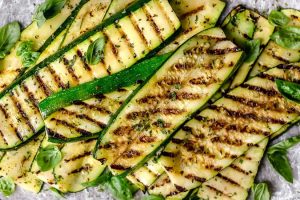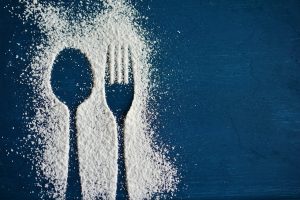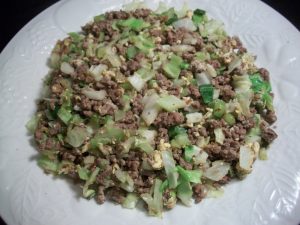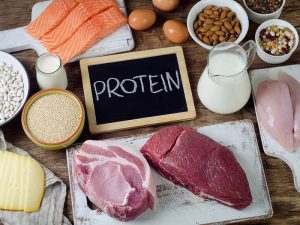
With permission by Mark Hyman, MD
Why is it that we believe we can feed our bodies industrial nutrient depleted food-like substances empty of life and be healthy? How did we come to believe that food industry chemicals and processing could replace nature made foods?
A hundred years ago all food was organic, local, seasonal, fresh or naturally preserved by ancient methods. All food was food. Now less than 3% of our agricultural land is used to grow fruits and vegetables, which should make up 80% of our diet.
Today there are not even enough fruits and vegetables in this country to allow all Americans to follow the government guidelines to eat 5 to 9 servings a day.
What most of us are left with is industrial food. And who knows what lurks in the average boxed, packaged, or canned factory-made science project.
When a French fry has more than 20 ingredients and almost all of them are not potato, or when a fast food hamburger contains very little meat, or when the average teenager consumes 34 teaspoons of sugar a day, we are living in a food nightmare, a sci-fi horror show.
The very fact that we are having a national conversation about what we should eat, that we are struggling with the question about what the best diet is, is symptomatic of how far we have strayed from the natural conditions that gave rise to our species, from the simple act of eating real, whole, fresh food. When it becomes a revolutionary act to eat real food, we are in trouble.
The food industry, which is the second biggest employer in America after the Federal government, heavily influences the media and government agencies that regulate it (US Department of Agriculture, Food and Drug Administration and Congress) and intentionally confuses and confounds us.
Low-fat is good – so anything with a “low-fat” on the label must be healthy. But Coke is 100% fat-free and that doesn’t make it a health food. Now we are told to eat more whole grains, so a few flecks of whole grains are sprinkled on sugary cereals. That doesn’t make them a health food either.
The best advice is to avoid foods with health claims on the label, or better yet avoid foods with labels in the first place.
In the 21st century our tastes buds, our brain chemistry, our biochemistry, our hormones and our kitchens have been hijacked by the food industry. The food-like substances proffered by the industrial food system food trick our taste buds into momentary pleasure, but not our biology which reacts, rejects and reviles the junk plied on our genes and our hormonal and biochemical pathways. We need to unjunk our biology.
Industrial processing has given rise to an array of addictive, fattening, metabolism- jamming chemicals and compounds including aspartame, MSG (monosodium glutamate), high-fructose corn syrup and trans-fats, to name the biggest offenders.
MSG is used to create fat mice so researchers can study obesity. MSG is an excitotoxin that stimulates your brain to eat uncontrollably. When fed to mice, they pig out and get fat. It is in 80% of processed foods mostly disguised as “natural flavorings”.
And trans-fat, for example, is derived from a real food – vegetable oil – chemically altered to resist degradation by bacteria, which is why modern cookies last on the shelf for years.
But the ancient energy system of your cells is descended from bacteria and those energy factories, or mitochondria, cannot process these trans-fats either. Your metabolism is blocked and weight gain and type 2 diabetes ensue.
Your tongue can be fooled and your brain can become addicted to the slick combinations of fat, sugar, and salt pumped into factory-made foods, but your biochemistry cannot and the result is the disaster of obesity and chronic disease we have in America today.
No wonder 68% of Americans are overweight, no wonder that from 1960 to today obesity rates have risen from 13% to 36% and soon will reach 42%. Over the last decade, the rate of pre-diabetes or diabetes in teenagers has risen from 9% to 23%.
Really? Almost one in four of our kids now has pre-diabetes or type 2 diabetes? And 37% of normal weight kids have one or more cardiovascular risk factors such as high blood pressure, high cholesterol or high blood sugar because even though factory food doesn’t make them fat, it makes them sick!
It is time to take our kitchens and our homes back. Transforming the food industry seems monumental, a gigantic undertaking. But it is not. It is a small problem. In the small places in our lives, our shopping carts, the fridge, the cupboard, the kitchen and on our dining room table – is where all the power is.
It is the hundreds of little choices, the small actions you make every day that will topple the monolithic food industry. This century is littered with the bodies and institutions of fallen despots and despotic regimes – from the fall of the Berlin wall to the Arab spring. There is no force more powerful than a small group of individuals with a desire to end injustice and abuse.
A very simple idea can break through the confusion and plant the seeds of a revolution. Our bodies were designed to run on real food. Our natural default state is health. We need to simplify our way of eating.
Unjunk our diet, detoxify our bodies and our minds and we heal. Simply choose foods such as – vegetables, fruits, nuts, seeds, healthy oils (olive oil, fish oil, avocado and coconut oil), small amounts of whole grains and beans and lean animal protein including small wild fish, grass-fed meat, and farm eggs.
There are no diets, no calorie counting, and no measuring fats, carbs or protein grams. None of that matters if you choose real, whole, fresh, live foods. If you choose quality, the rest takes care of itself.
When you eat empty industrial food with addictive chemicals and sugar, your body craves more looking for nutrients in a dead food where none are to be found. Yet after eating nutrient-dense fresh food for a few days the biological addiction to industrial food is broken, and in a few more days your cells begin to rejuvenate and you heal from the inside out.
And the side effects are all good ones – effortless weight loss, reversal of high blood pressure, diabetes, high cholesterol, clearing of brain fog, lifting of depression and fatigue and even better skin, hair and nails.
What is more important than what you take out of your diet is what you put in. Add in the good stuff and there won’t be room for the bad. Mother Nature is the best pharmacist and food is the most powerful drug on the planet. It works faster, better and cheaper than any other pharmaceutical.
Whole real food spiced up with a few super foods such as chia, hemp, parsley, cilantro, coconut and green juicing can beneficially affect thousands of genes, regulate dozens of hormones, and enhance the function of tens of thousands of protein networks.
Dinner is a date with the doctor. What you put at the end of your fork is more powerful than anything you will ever find at the bottom of a prescription bottle.
The roadmap to health is simple, eat real food, practice self-love rather than self-loathing, imagine yourself well, get sufficient sleep, and incorporate movement into your life. The solution to our health crisis and obesity epidemic is not complicated.
Health and happiness are often just a few days away. Each of us has the capacity to make the small changes in our lives that will create big changes in our food landscape, our agriculture, and even our government policies.
I hope you will use the power of your fork to be part of the start of a true food revolution.
Have you changed your eating habits to include more real food?
What have you done to create a healthier diet for your family?
Have you eliminated MSG from your diet?
Think about it!
To your good health,
Mark Hyman, MD
Mark Hyman, MD is an American physician, scholar, and New York Times best-selling author. He is the founder and medical director of the UltraWellness Center and a columnist for The Huffington Post.
Hyman is a proponent of functional medicine, a discredited set of pseudoscientific beliefs; he is the chairman of the Institute for Functional Medicine. He was the editor-in-chief and is a contributing editor to Alternative Therapies in Health and Medicine, a peer-reviewed medical journal focused on functional medicine.
 Ingredients:
Ingredients:

 Ingredients:
Ingredients: Decades of scientific research on weight loss have uncovered a few key pieces of information on what helps people successfully win the battle of the bulge.
Decades of scientific research on weight loss have uncovered a few key pieces of information on what helps people successfully win the battle of the bulge. Calories are not the issue…where those calories come from IS!
Calories are not the issue…where those calories come from IS!

